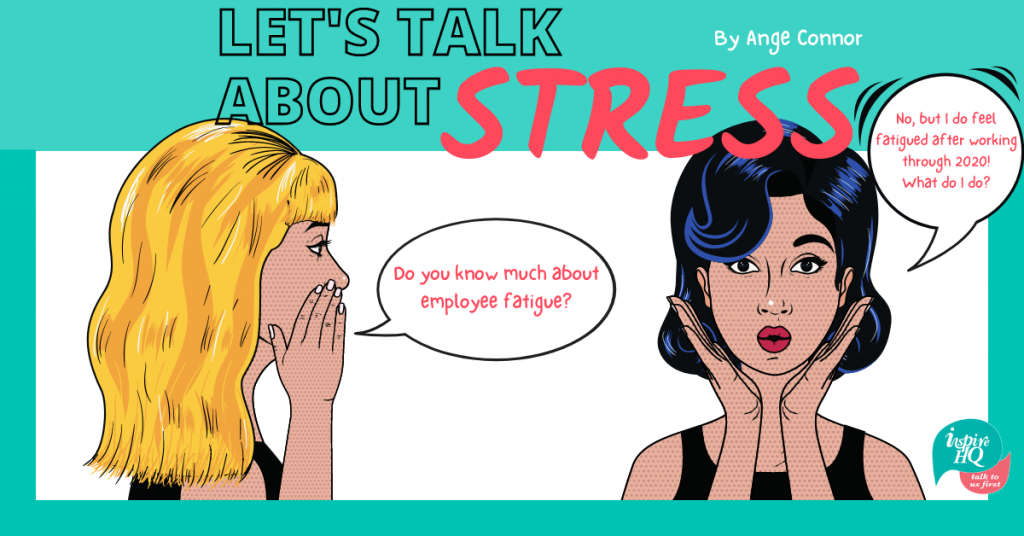I’ve only just learnt that April is Stress Awareness Month and what better topic to blog about given employee fatigue and stress is a hot topic of conversation right now.
We all know how tough 2020 was; for a large majority of people our stress levels were heightened. I’m sure I only have to mention home schooling, toilet paper hoarding, not being able to leave your home, miss seeing family and friends, and the memories and emotions of 2020 come flooding back.
What I’ve observed and heard is that during 2020 there was really no one taking annual leave or sick leave, unless those employers were forced to close or required employees to use their annual leave during stand downs. It’s been reported that people weren’t getting sick with a cold or the flu because we were all self-isolating. While some might have been on reduced hours or leave, it certainly wasn’t the same as taking that well deserved holiday, relaxing and kicking back on a beach somewhere sunny.
Fast forward to the end of the first three months of 2021, and what I am seeing and hearing is that for the majority of businesses across most sectors it is full steam ahead. It’s recovery mode; there is work to be done, business confidence is high, and businesses are pushing hard to re-build after a tumultuous 2020.
What does this mean for our employees?
A common topic of conversation I am having with business owners is around employee fatigue and increased stress levels. It’s no real surprise when you factor in the reduced annual leave and sick leave during 2020, with some industries taking a break over the Christmas and New Year period, while others pushed hard to ‘make hay while the sun was shining.’ For many businesses, their employees haven’t had the opportunity to take a proper break and recharge the batteries.
What these fatigue and increased stress levels can look like in the workplace are:
- Reduced engagement
- Increased errors in work
- Reduced work output
- Increased conflict
- Reduced resilience
- Increased anxiety
These are only a few examples. We all experience stress in different ways and respond to it in different ways. Long term stress can have significant health implications, so supporting our team members and helping to reduce their stress levels is paramount.
Many businesses are asking me what I’m seeing and what other businesses are doing to manage employee stress.
Here are some of the initiatives I am seeing:
- Proactively managing annual leave accruals and ensuring employees have taken leave or have leave scheduled in for the immediate future.
- Gifting leave – some businesses have provided their team members with what is typically being referred to as COVID leave. From 2 days to a week; employers are gifting this leave to employees with the whole purpose being about the employee using this leave to re-energise and take time out for themselves.
- Implementing Wellness Officers – similar to your First Aid Officers / Fire Wardens etc. Wellness Officers are there to support employees with their wellbeing, provide information about available support services, increase awareness and educate team members on the importance of looking after their own wellbeing.
- Increased implementation of Employee Assistance Programs (EAP). While EAP is not a new initiative, I’m seeing more and more small and medium businesses implement EAP.
- An increased focus on health and wellbeing initiatives; such as team members taking a walk / walking meetings, encouraging increased exercise, promoting rest, managing hours of work – particularly as some people who have been working from home and have fallen into the trap of working longer hours.
To support your employees in managing their stress and increasing stress awareness, what could your workplace do during April for Stress Awareness Month? I’d love to hear your ideas and initiatives so please feel free to share them with us.
Disclaimer: The material contained in this publication is of a general nature only. It is not, nor is intended to be, legal advice. If you wish to act based on the content of this publication, we recommend that you seek professional advice.


